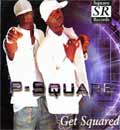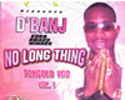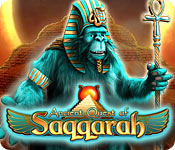Good or Bad JMartins Ft Timaya
and other stars, one of my all time favourites Oweey.
| Privacy Policy | Copyright©Numusicstreet Productions |
FAQ | |

|
9ice Gongo Aso At the last edition of the acclaimed Hip Hop World Awards held in March 2008, 9ice was voted winner for the Revelation of the Year award and the Best Vocal Performer in the male category. Roughly a month later at the first edition of Soundcity Music Video Awards, 9ice finished as a nominee in the category of Best New Artiste. Beyond formal awards and public endorsements, the young artiste did succeed in implanting his name at the heart of lovers of good music in across Nigeria, around and outside the African continent. 9ice is definitely a household name in the Nigerian hip hop scene. He has carved a niche for himself as a great writer and hook man who placed creativity and originality at the forefront of his endeavour. His ingenuity broke boundaries within a very short period, left lasting impression on anyone that cared to listen to his strongly worded and lyrically loaded songs. This youngster is currently enjoying the success of his single, entitled: Gongo Aso.The wave making hit is the most popular song on radio today in Nigeria. |
 |
PSquare -Dynamic RNB Duo The story of P Square began in St. Murumba College, a small Catholic school in Jos, Nigeria. Identical twins Peter and Paul joined their school music and drama club where they began singing, dancing, and miming songs by MC Hammer, Bobby Brown and Michael Jackson. They later formed an a cappella quartet called MMPP (Michael, Melvin, Peter and Paul). Drawing inspiration from their music idol Michael Jackson, they began break dancing, and formed the group called "Smooth Criminals" in 1997. Their artistic talent and precise dance routine soon made them household names in the city of Jos, where they performed at school functions and other occasions. Later in 1999, Peters and Paul returned to music school to develop their skills on keyboard, drums, bass and rhythm guitar. Their work includes the soundtracks for films like Tobi, Mama Sunday, Moment of Bitterness, Evas River. Academic pursuits led them to the University of Abuja later that year, where they were admitted to read Business Administration. The Smooth Criminals disbanded when its members were dispersed to northern universities in Nigeria. Subsequently Peter and Paul formed their own group, variously called "Double P", "P&P", and "Da Pees", until they eventually settled on "P Square". In 2001, P Square won the "Grab Da Mic" competition, and hence Benson & Hedges sponsored their debut album, titled "Last Nite", which was released under Timbuk2 Music Label. They are managed by Bayo Odusami aka Howie T, a seasoned concert promoter and the CEO of Adrot Nigeria Limited. P Square was nominated as "Most Promising African Group" in the Kora Awards three months after the release of their debut album. They eventually won the 2003 Amen Award for Best R&B Group. P Square has now released their second album, "Get Squared" under their own label, Square Records. This album is marketed nationwide by TJoe Enterprises, although they are still managed by Howie T of Adrot Nigeria Limited. The video for the second album, "Get Squared", held the #1 position on the MTV Base chart for four straight weeks. They have an ever growing fan base across South Africa with a particular stronghold of die hard fans in Cape Town. Audi station wagon sales numbers have rocketed in Cape Town since one featured in the band's latest video. |
 |
Asa Fire on the
mountain Unlike her peers, Asa’s emergence as a serious artiste is deeply embedded in mystery. And her name, which means hawk in Yoruba, is no less enthralling. She has managed, in a very short time, to capture the attention of music lovers, especially the upper class, with her sonorous voice, laced with solemn instrumentation and good stage presence. But she feels that her music is still evolving, just like her character and passion. “My music is a journey, but for now, it will be safe to call it Soul. Asa, as a whole, is unfolding. I am a brand that is still developing and it will be unwise to permanently give myself a name because I am still searching. I am young and still growing and as time goes on, I will add other things to everything that I already know and have,” she said. However, she acknowledges that her music is a fusion of hip-hop, folk, jazz and many other influences. In a way, understanding Asa requires a glimpse into her childhood. As a child, Asa was restless and swift like the hawk. One day, she strayed away from home, causing emotional trauma to her parents. After many hours of fruitless search in the neighbourhood, her parents and the search party gave up, thinking she may never be seen again. Then suddenly, to the relief of everybody, the young girl appeared in the company of a woman who had found her loitering at a street corner many kilometres away from home. She was re-christened ‘Asa’ in the confusion and excitement that followed her re-appearance in the company of an old woman. Since then, Asa has lived her new name, doing extraordinary things like the hawk. But the journey to self-realisation was strewn with challenges. First, she remembers the tortuous experience of travelling from Lagos to Jos, Plateau State, a 14-hour journey by road, just to attend secondary school. But that also gave her an early lesson in perseverance. “That was when I saw life from a different perspective because I had to stay with different people and learn about their characteristics and behaviours,” she recalls. Although Asa had exhibited tendencies towards music earlier in life, it was still a little difficult gaining the confidence of her skeptical parents who thought differently about her line of career. “Like most parents in Nigeria, they hoped and anxiously waited for me to go straight into what they wanted me to do, probably law or medicine. But I refused. So, I will advise every parent, if you find a talent in your child, please help the child develop it. I am a master in what I do. I will be a flop if I go into Law because that is not what I want to do.” Today, the Abeokuta, Ogun State-born artiste is happy that she followed her mind. Though she refuses to disclose her age, claiming “she is too young to die, and too old to cry,” she is definitely on the path to self-actualisation. Asa has done quite well with her solo performances at different events. She has also collaborated with fellow musicians like Lagbaja and many others. A few years ago, she undertook a major tour of French cities, following an invitation from the French government. The artiste who recently returned from a musical tour of the United Kingdom has also taken her music to Lisbon, Portugal and other parts of Europe. And for her, no height is unattainable. “I want to see my music making some sense, people appreciating it, and myself being on the biggest stages and performing with great musicians. I have dreams.” Though she sees herself as a young artiste who still has a long way to go, she, nevertheless, confesses that she is overwhelmed at the way people are touched by her music. “My music makes people to sit down and think; it makes people appreciate God the more, and it makes them appreciate music too. That is one thing that makes me glad because it is positive,” she noted. Outside music, Asa is eager to be a veritable role model to young people. In fact, she told TheNEWS that her focus is to inspire young children and, to live what she preaches. She is, however, worried by new generation of children who are all products of television and radio. She agrees that everybody has been seriously affected by Western influences, yet she believes that we can rescue the next generation by infusing into their lives, African culture, language and ways of life. But she also thinks that parents share in much of the blame, especially the elite, who encourage the exclusive use of English language at the expense of traditional languages. This, according to her, has resulted in not just outright alienation, but also exclusion from African ways of life. On stage, Asa could easily be mistaken for Tracy Chapman, the Jamaican soul diva, because of her vintage guitar, dreadlocks, stage mannerisms, austere costume and even the genre of music. But she dismisses any influence from Chapman, though she agrees having been influenced by such music greats as Fela Anikulapo-Kuti, Lagbaja, Bob Marley, Marvin Gaye and Eryka Badu. And for those who continually link her with Chapman, Asa has a response: “I have not really listened to her, but just because I use the guitar and I have dreadlocks, people keep saying that I remind them of Tracy Chapman. Or probably the content of my music. I do a lot of conscious music, and she does that too.” Those who thought lightly of her at the beginning of her career, mainly due to her very quiet disposition, are beginning to have a re-think. Though she is conspicuously missing on the pages of Nigerian newspapers and magazines, Asa is “slowly but surely,” according to her, headed for the top. But she has a lot to contend with as she consolidates on this upward movement. And she is widely believed to be working hard to maintain a high standard in an industry that is fraught with inconsistencies. Nonetheless, she hopes to draw from her professional experience which began from her days at the Department of Theatre Arts and Music, Lagos State University. Asa also came under the influence of Peter King, a jazzist whose College of Music in Badagry, Lagos, provided lessons for her on the guitar and theory of music. She was also at a school of jazz in France where she honed her skills in voice training and stage techniques. Her journey may have only just begun, but Asa is definitely a good sign of the things to come in the Nigeria music industry. |
 |
Paul "Play" Dairo, Nigeria's
version of Babyface, |
 |
Styl-Plus In 2002, the entire crew of styl-plus (including managers T-Jazz and Joey; and producers SUNKY and Mekoyo) were virtual unknowns in the African music world. Now, STYL-PLUS has become a household name in Nigeria, and is rapidly growing in popularity in the UK, USA and South Africa. Have been called the African " Boys 2 Men", these young mavericks have inspired the music world of nigeria, starting from the scratch, without any support; then growing into the most promising group in Nigerian music, in the horizon. Their hit tracks Olufunmi, Runaway and Call My NAme, proved to the world that Nigerian music could be as good as any; with their phenomenal successes on their airwaves in their home country. The song Olufunmi their first major hit was voted song of the year 2003 by listeners on 96.9 Cool FM Abuja . It was the most requested song on every major station in the country, including, Ray Power, Rhythm Fm, Cool Fm, Eko Fm, Brilla Fm, Kapital Fm, and Metro Fm Lagos. Olufunmi and Run Away werer are the most requested love songs on
all the R & B or radio love shows nation wide. Since then they
have gone from strength to strength and are riding high with their
latest offerings from the Album Expressions. |
 |
Infinity The song ‘Olori Oko’ is their most popular hit to date and has earned them the much deserved popularity in Nigeria and worldwide as well as the best video award at the recently held Nigeria Music Awards. Their songs are an absolute must for all true gospel music lovers |
 |
|
 |
Face Idibia: Nigeria's African King From the country that gave the world pop star Seal, jazz and R&B singer Sade comes a man who is arguably one of the most important artists of all with his hit song, "African Queen. Born Innocent Ujah Idibia in Jos, Nigeria just outside of the capital city of Abuja, he is on a one man crusade to change the image of Afro Hip Hop and to elevate it to the stature of Reggaeton. 2Face idibia sometimes spelt tuface crooner extradionaire is the star protegee of Nigeria's music Mongul Kenny Ogungbe. To many he is the face of Nigeria's new fast growing music industry
with a string of hits since the single 'African queen' such as 'For
Instance' Stylee and No Shakin and collaborations with international
artists such as Beenie man, Tuface is now one of the most recognisable
faces of the African music scene to date. |
 |
D’BANJ” (KOKO MASTER) a Nigerian singer and song writer as well as harmonica guru, a charismatic stage performer with boundless energy…. D’Banj grew up listening to Fela’s music, “his mentor” and he has performed at Femi Kuti’s new AFRIKAN SHRINE in Lagos as well as the Shrine Synchro System’s regular London Night at Cargo. He also performed at the Black President Concert in memory of Fela’s art and legacy at the Barbican in London. Without ever turning into a carbon copy of his hero, D’Banj brings Afrobeat to life and into the 21st century with breathless enthusiasm as well as a good dose of humor. All of his songs are based on true life stories of his own life, often hilarious but with a deeper meaning which documents the struggle of a young African trying to achieve his dreams. In his case is to be a successful artiste/musician. D’Banj is music and music is D’Banj. He performs in Yoruba, English and like his hero Fela Kuti in Pidgin English and has performed his songs as guest at various JJC & 419 Squad shows including WOMAD River mead. Whilst being a charming, easy-going and humble young man, D’Banj has just one ambition; to be the biggest living African artiste in the world. With his first album titled NO LONG THING which was produce by young and talented producer; Don Jazzy which has hit tracks like; TONGOLO, MOBO LOWO WON, ALL THE WAY, SOCOR & AIRBORNE, an infectious Afrobeat tune with a juju edge, the dream is not far fetch. D’Banj was born as Dapo Daniel Oyebanjo in the Northern city of Zaria, Kaduna State, Nigeria to an artillery officer and a church dignitary whom hailed from Shagamu in Ogun State. Due to his father’s job, D’Banj moved several times within Nigeria as well as abroad to India. He was sent to Nigerian military school at age 11 and was expected to enter the military like his father, but at 14 D’Banj picked up a weapon of different kind and altogether more peaceful; the harmonica. He was introduced to this instrument by his late brother who tragically died in a plane crash at age 17. His brother’s harmonica was one of his possessions recovered after the incidence and D’BANJ started to cherish it. His incredible harmonica skills are self taught; he says, “I play the harmonica like it was built for me”. D’Banj became more and more involved in music and he cannot see himself doing anything else with the same passion. His song “All The Way” is about the struggles he has faced with his parents over his chosen career. Dapo has now adopted the elegant, almost French-sounding name “D’Banj”, a combination of his first name Dapo and his surname Oyebanjo. He has recorded songs with established artistes like Ruggedman, SID, JJC & 419 Squad among others. He has also performed along side many international artiste in Nigeria like Jay-Z, Beyonce, Missy Elliot, Ja Rule, Bennie Manand [[Wayne Wonder.He is a natural charismatic, energetic and infectious performer that can hold his audience to ransom for as long as he wants because nobody ever gets tired of listening to him. He is a kind of artiste that can do more than hold his own any time. He started making serious waves in Nigeria in 2006 with Rundown Funk U Up album. His most influencial tracks are 'Why Me','Tongolo Remix', and 'Booty Call'. But when the Curriculum Vitae (Mo Hits Crew Compilation) with the formerly unknown members of Mo Hits Crew, D' Prince, Wande Coal and D'Angelo, his popularity increased even much and now it has even extended to other parts of Africa especially South Africa and Ghana. |
|
|
|
|
|
|


